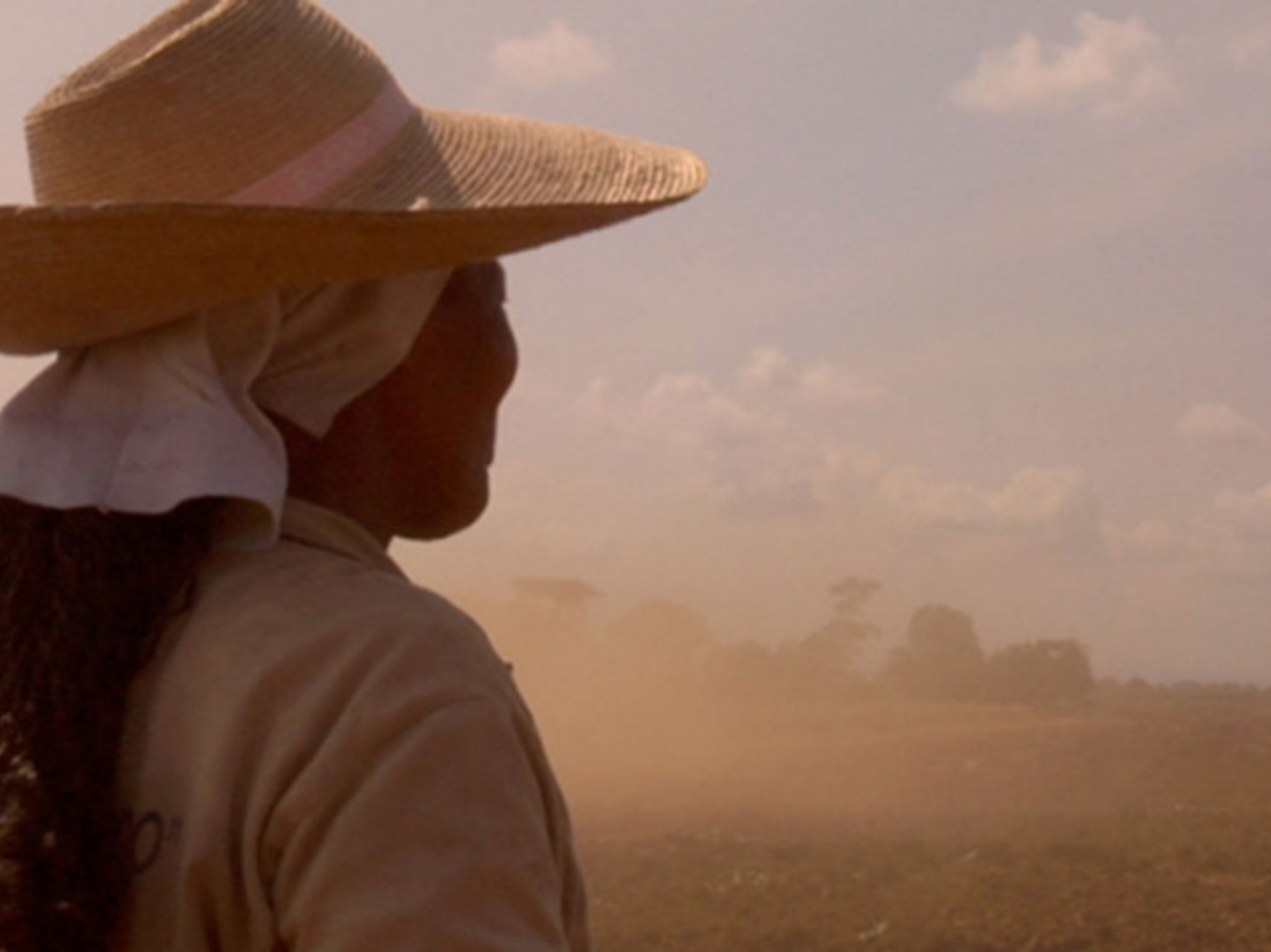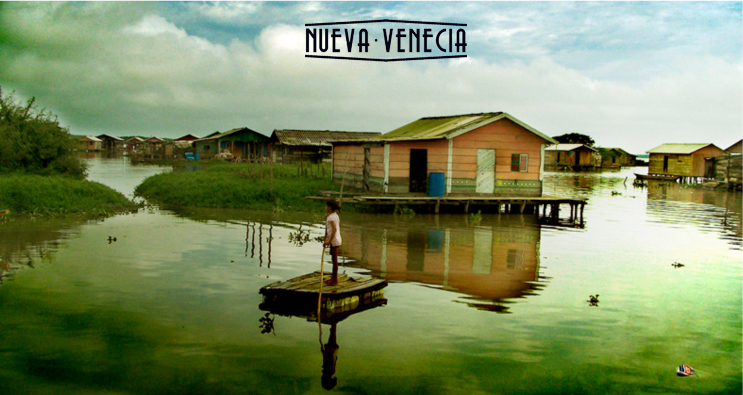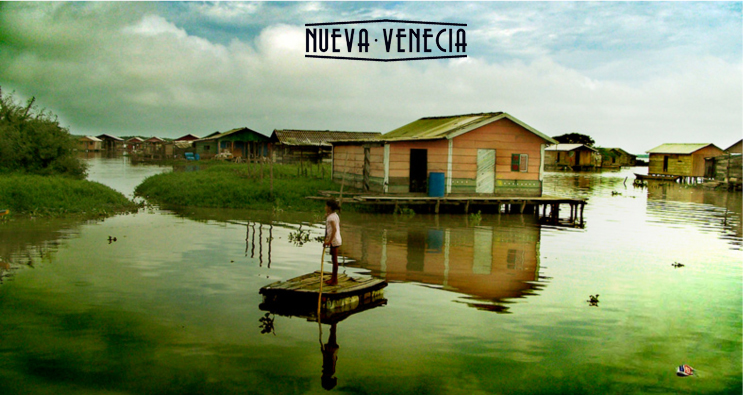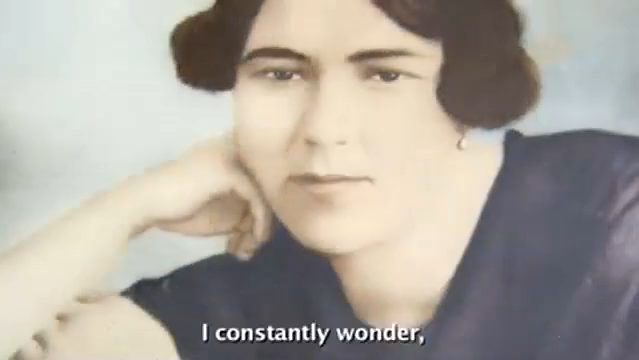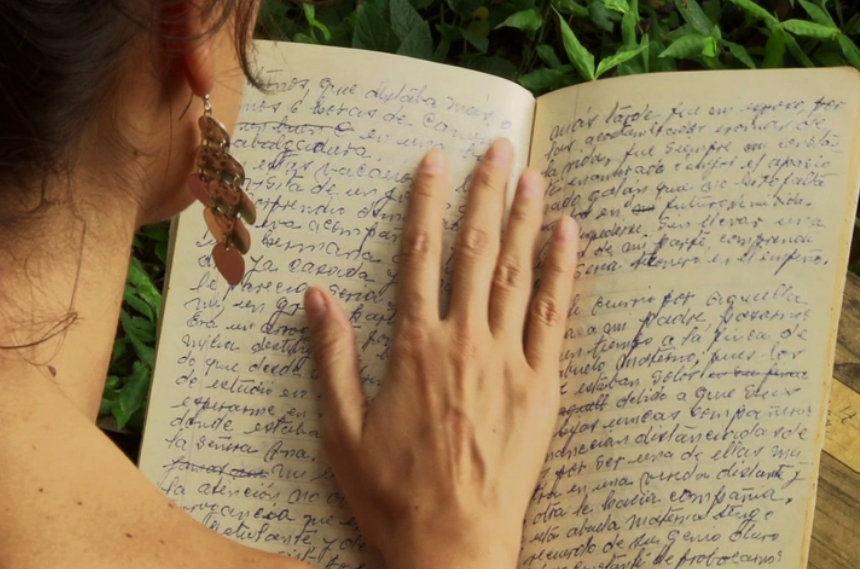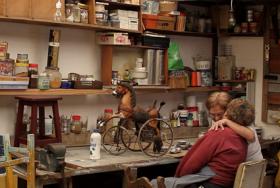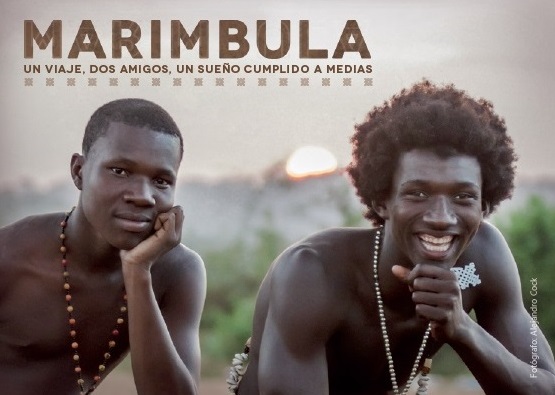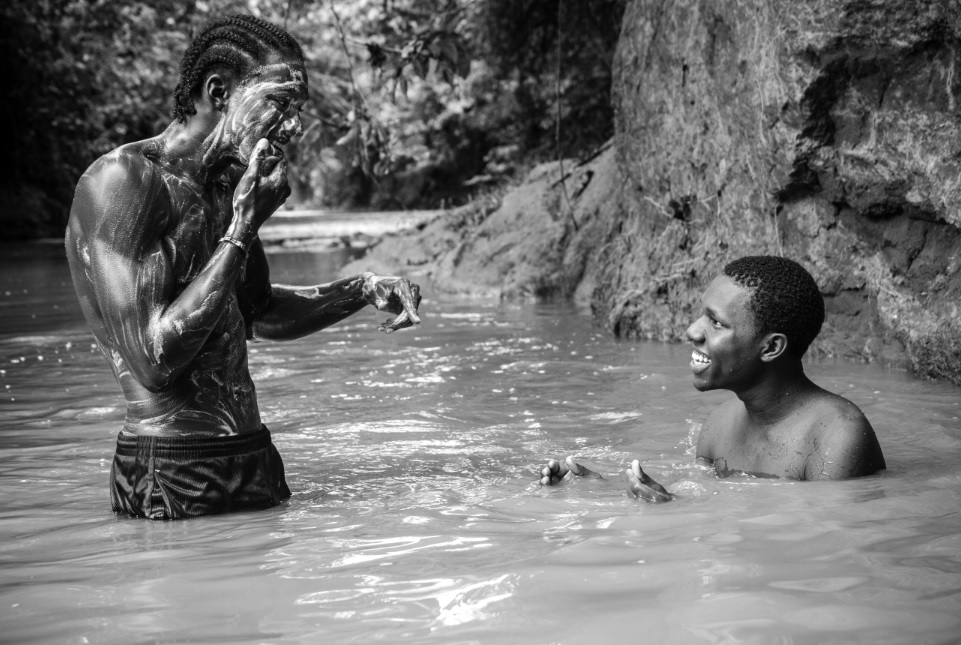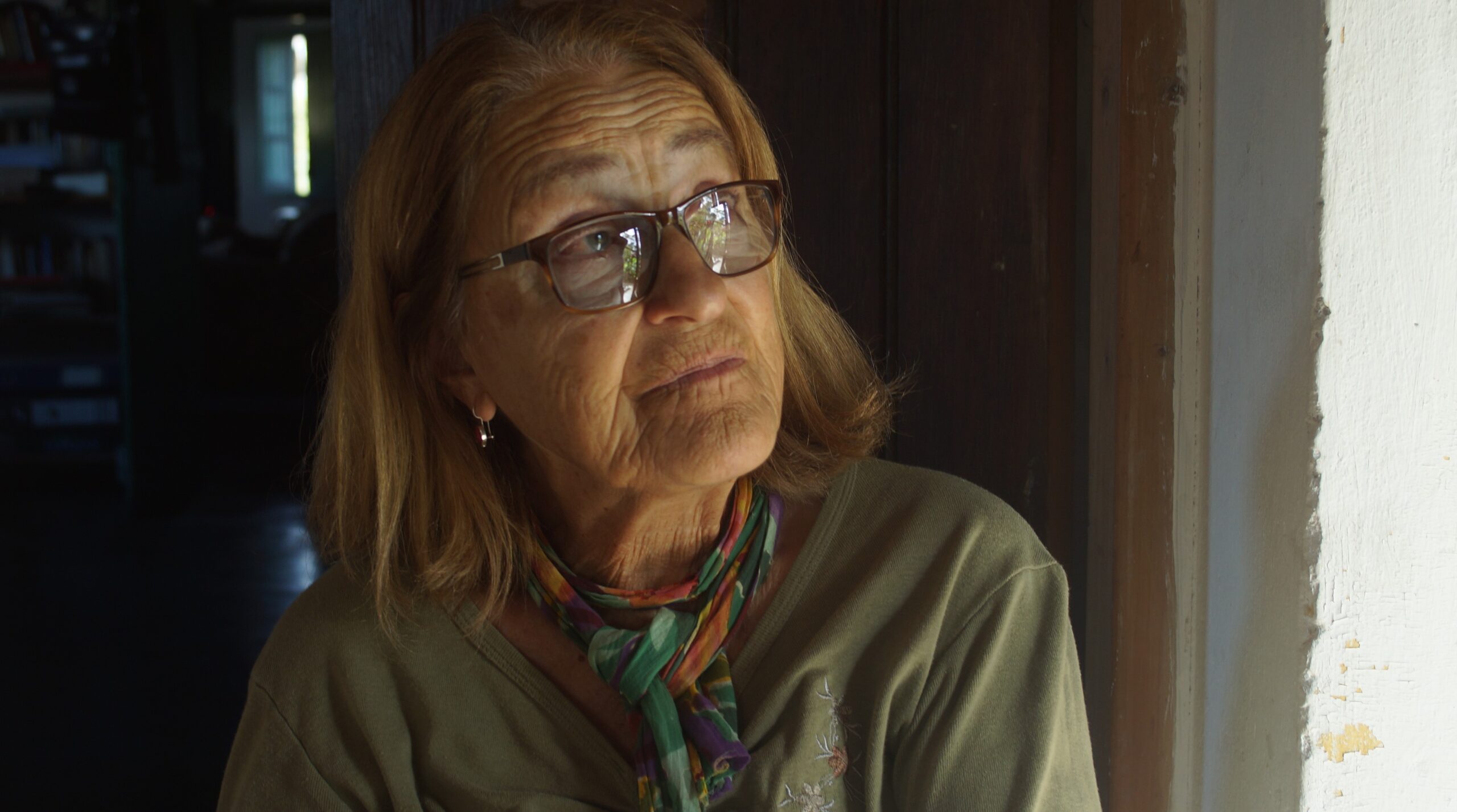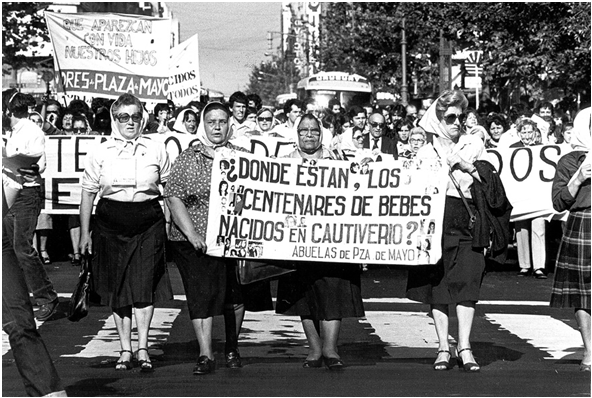Director: EMILIANO MAZZA DE LUCA
En medio de la mayor laguna de Colombia, una aldea flotante resiste a desaparecer a pesar de las inundaciones y los recuerdos de la masacre que los fracturó años atrás. Su pasión por el fútbol los reunirá en una aventura de realismo mágico: sacar a flote la cancha de Nueva Venecia.
Nueva Venecia es un documental acerca de la vida en un pueblo sobre palafitos en medio de la Gran Ciénaga de Santa Marta y la pasión que les llevó a construir, sobre el agua, una cancha de fútbol. Descubriremos su estilo de vida, las historias que les han marcado la piel y el alma, y su pertenencia a un lugar que carece de tierra firme, agua dulce, saneamiento o servicios médicos, pero es donde nacieron y donde quieren morir.
Sus habitantes, principalmente pescadores, viven en estrecha relación con la ciénaga que los contiene y les marca el ritmo de la vida. Con la temporada de lluvia, se generan inundaciones que deterioran sus casas y bienes. En época de sequía, tras bajar las aguas, hay un período de bonanza y la ciénaga les deja peces, aunque cada vez más escasos y pequeños, evidencia de los cambios medio ambientales y la contaminación por agrotóxicos en la región.
En esta relación de amor-odio con la ciénaga y de ciclos que se repiten eternamente, como en un rito de Prometeo caribeño, pareciera que la pasión por el fútbol de los pobladores de Nueva Venecia hubiera ofendido a la ciénaga por osar construir sobre ella una cancha, y ésta los condena hasta la eternidad, sepultándola bajo sus aguas negras en las crecientes y haciéndola emerger en cada sequía, para que los hombres, esclavos de su pasión, tengan que repararla y así enfrentar a Sitio Nuevo, el pueblo vecino y rival.
La temporada de lluvias ha finalizado. La ciénaga baja lentamente su nivel y el pueblo se prepara para su mejor momento en el año. Mientras descubrimos el día a día, la cancha se seca bajo el solazo de diciembre y los niños practican fútbol en los lugares más particulares que podamos imaginar: secaderos de pescado, el puente de la escuela o adentro de la casa. Todos se preparan para el primer partido de la temporada contra Sitio Nuevo.
Nueva Venecia es una película sobre el sentido de pertenencia y los ciclos de la vida: las estaciones, las mareas, el empezar otra vez: levantarse después de una caída, igual que en el fútbol que cada domingo da revancha…
English version
In the middle of the biggest colombian lake, a floating village withstands disappearing despite the memories of a massacre and floodings submerging it every year. A football field keeps the community afloat. This is a documentary film about a stilt village in the middle of Santa Marta’s Big Marsh, and the passion pushing its inhabitants to build, on the water, a soccer field.
Their lifestyle, the stories that have marked their skin and souls, and their belonging to a region where there is neither mainland, nor fresh water, but remains their native land and the place where they want to live and die. The thousand people living in, mostly fishermen, are in close relationship with the marsh surrounding them and marking their life rhythm. The rainy season generates floodings threatening their lives and damaging their homes. Once the water retreats, it leaves behind some fish, but they are smaller and scarcer every time, bringing out the water pollution and the environmental changes affecting the Magdalena river, it’s main affluent.
[vimeo http://vimeo.com/157493739]
Director: EMILIANO MAZZA DE LUCA
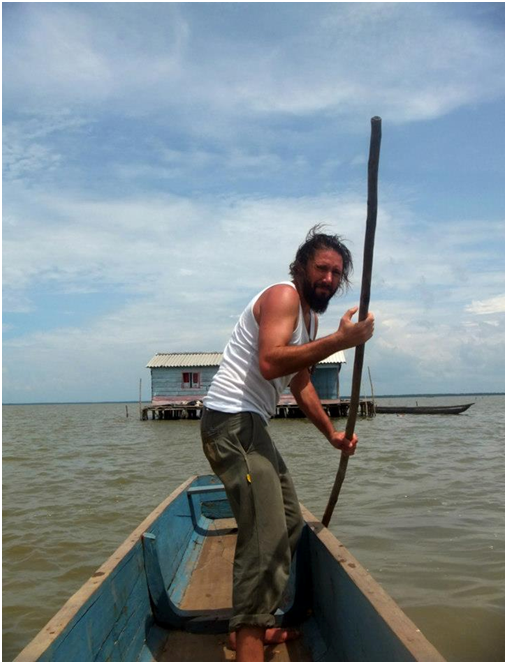 Nací en Montevideo en 1970. Hijo de escenógrafo y fonoaudióloga especializada en teatro, crecí entre la tragedia griega y el sainete rioplatense. La rebeldía adolescente me llevó a recorrer las carreras de programación y matemáticas, hasta que en 1994 ingresé al departamento de arte de la serie “Curro Jiménez II”, de Antena 3 de España, que se rodaba en Uruguay. Mi primera tarea fue barrer el set: ¡un cliché!
Nací en Montevideo en 1970. Hijo de escenógrafo y fonoaudióloga especializada en teatro, crecí entre la tragedia griega y el sainete rioplatense. La rebeldía adolescente me llevó a recorrer las carreras de programación y matemáticas, hasta que en 1994 ingresé al departamento de arte de la serie “Curro Jiménez II”, de Antena 3 de España, que se rodaba en Uruguay. Mi primera tarea fue barrer el set: ¡un cliché!
Asistí al Taller de Producción Ejecutiva de Sandy Lieberson en la EICTV.
A partir de 1997 me dediqué a la producción de publicidad. Socio fundador de la productora Paristexas, ejercí tareas de Asistente de Dirección, Jefe de Producción, Director de Producción y Productor Ejecutivo. Entre los trabajos más queridos figuran los cortometrajes “El Cojonudo” y “Ataque de Pánico” dirigidos por Fede Álvarez, el cortometraje documental “La Memoria de los Andes” y los clips “El Payaso Carambola” y “Yendo a la Casa de Damián” para el Cuarteto de Nos, dirigidos por Vasco Elola.
Entiendo a la producción como un pilar creativo fundamental para dar a luz un proyecto.
En marzo de 2011 creé Passaparola, una productora de contenidos de autor con la misión de, como su nombre lo indica, “hacer correr la voz” de los temas que me interesa contar. Actualmente dirijo y produzco los largometrajes “Vida a Bordo” y “Multitudes”, en etapa de edición, y “Nueva Venecia” una co producción con Colombia y México que se encuentra en etapa de desarrollo. Para el canal cultural Tevé Ciudad dirijo la serie “Montevideo Inspira, La Frontera”, y también dirijo la serie documental “Plano, Color y Línea”, sobre la reconstrucción de un mural del pintor Joaquín Torres García quemada en el Museo de Arte Moderno de Río de Janeiro en 1974. Ambos proyectos están en investigación y desarrollo.
Mis proyectos han sido invitados por festivales y foros como Doc Montevideo, Cine Fábrica de Redes Morelia Lab, Doc Bs As, DocsDF, Latin Side of the Doc, Sunny Side of the Doc, Ventana Sur, Festival de Cine de Guadalajara, Monterrey Film Festival, Dok Leipzig y DocuLab Guadalajara.
Ficha técnica
Duración: 24 minutos.
Formato: HD
Idioma: Español
Productor ejecutivo: Martha Orozco | Sandra Jaramillo
Director: Emiliano Mazza de Luca
Director de fotografía: Ricardo Restrepo
Sonidista: Isabel Torres
Montajista: Eulalie Korenfeld
